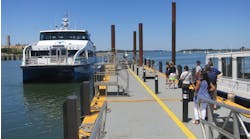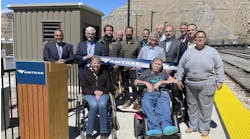The Air Quality Improvement Task Force (AQITF) hosted the South Central Kansas Air Quality Leadership Summit at Botanica on March 5. The Summit brought together elected officials and business leaders to learn about national air quality standards for ozone and the potential for this area to exceed national ozone limits which are set by the Environmental Protection Agency (EPA).
Wichita and the surrounding communities in the four-county area (Butler, Harvey, Sedgwick and Sumner) are at risk of exceeding ozone limits, also referred to as “nonattainment” which could have negative effects on our region’s economy, health and quality of life.
“A nonattainment designation could cost the Wichita area between 10 and 40 million dollars in new industry requirements and region-wide mandates that may be required by the EPA such as allowing only reformulated gasoline to be sold in gas stations during the summer months,” said Janet Miller, Wichita City Council member.
At the Summit, keynote speaker Mike Alesandrini, from the national consulting firm AECOM, told local business and government leaders about his experience leading the St. Louis area through the nonattainment process. Summit participants also discussed strategies to avoid exceeding ozone limits and prepare for a possible nonattainment designation.
The AQITF provides guidance and technical assistance to local government and businesses in order to maintain compliance with national air quality standards. The Task Force develops, maintains and tracks progress on educational efforts, policies and programs listed in the regional Ozone Advance Path Forward Plan which aims to decrease pollution and improve air quality.
Local governments and businesses are asked to implement technologies and Ozone Action Plans (projects) that will reduce the components that form ozone. “We want to hear about all the projects that are being completed or planned throughout the four-county area so we can include them in our regional Ozone Advance Path Forward Plan to show the EPA that we, as a region, are committed to improving air quality,” says Tonya Bronleewe, facilitator for the Air Quality Improvement Task Force.



